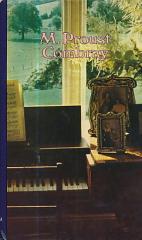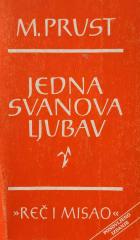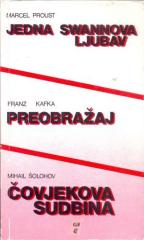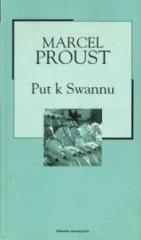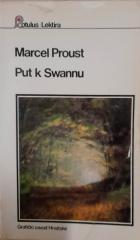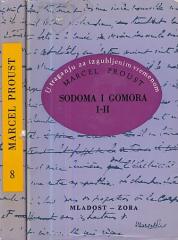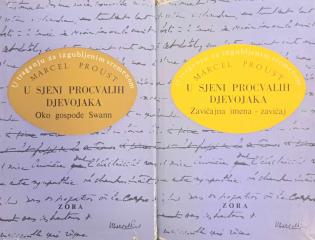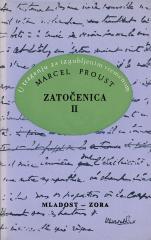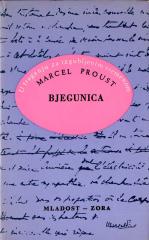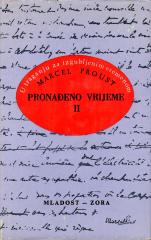Marcel Proust
Marcel Proust (10. Juli 1871 – 18. November 1922) war einer der bedeutendsten französischen Schriftsteller des 20. Jahrhunderts. Am bekanntesten ist er für seinen monumentalen Roman „Auf der Suche nach der verlorenen Zeit“ (À la recherche du temps perdu), der zwischen 1913 und 1927 in sieben Bänden veröffentlicht wurde. Proust wurde in Paris in eine wohlhabende bürgerliche Familie hineingeboren. Er studierte Jura und Philosophie, widmete sich jedoch schon früh der Literatur.
Zu seinen frühen Werken gehört die Essaysammlung Les Plaisirs et les Jours (1896), doch erst mit dem Roman Schwanenwelt (1913), dem ersten Teil seines Epos, erlangte er bedeutende literarische Anerkennung. Das Hauptthema von Prousts Prosa ist die Vergänglichkeit von Zeit und Erinnerung, insbesondere hervorgerufen durch das berühmte Motiv des Madeleine-Kekses, der eine plötzliche Erinnerung symbolisiert.
Prousts Stil ist durch lange Sätze, introspektive Analysen und tiefe psychologische Einsichten gekennzeichnet. Trotz gesundheitlicher Probleme arbeitete er fast ein Jahrzehnt lang, eingeschlossen in seinem mit Kork getäfelten Zimmer, an der Vollendung seines Lebenswerks.
Sein Einfluss auf die Weltliteratur ist enorm – zahlreiche Autoren, von Nabokov bis Beckett, nannten Proust als wichtige Inspiration.
Titles in our offer
Combray
Das Buch über Combray ist eine Allegorie eines ganzen Romans, ein Repertoire proustischer Themen und Motive.
Jedna Swannova ljubav / Preobražaj / Čovjekova sudbina
Ovako ponuđen izbor naslova odabrane srednjoškolske lektire trostruk je po svom tematskom fokusu, što se kod Prusta vidi u starom svetu, kod Šolohova u novom životu, a kod Kafke u nepouzdanom znaku čoveka.
Put k Swannu
Put ka Svonu je prvi deo monumentalnog ciklusa „U potrazi za izgubljenim vremenom“ (A la recherche du temps perdu), objavljenog 1913. Roman je strukturisan u tri dela i bavi se temama sećanja, vremena i ljubavi.
Put k Swannu
‘Put k Swannu’ prvi je od sedam dijelova romanesknog ciklusa “U potrazi za izgubljenim vremenom”, francuskog književnika Marcela Prousta.
Sodoma i Gomora I-II
U Sodomi i Gomori protagonist do kraja razotkriva ravnodušnost i okrutnost aristokracije i spoznaje prazninu koju je ostavila smrt bake. Njegova veza s Albertine se obnavlja, no on sumnja da Albertine voli djevojke.
U sjeni procvalih djevojaka, sv. 1-2 (Zavičajna imena-zavičaj, oko gospođe Swann)
U traganju za izgubljenim vremenom 10: Zatočenica 2
Der Gefangene ist eine Darstellung des Lebens in der Albertina. Die Liebe ist einseitig, aber der Protagonist hat nicht die Kraft, die Beziehung zu beenden. Bergotte und Swann sterben, und nach einem Streit mit Albertine bemerkt er eines Morgens, dass sie
U traganju za izgubljenim vremenom 11: Bjegunica
In Bjegunica, the protagonist learns that Albertine died in an accident and he recreates their meetings and life in his spirit.
U traganju za izgubljenim vremenom 13: Pronađeno vrijeme 2
After many years, the protagonist returns to Paris and meets faces from his youth. He becomes aware of the past and decides that the book he is going to write will be "a big cemetery" and "all his past life". Thus ends Found Time.
